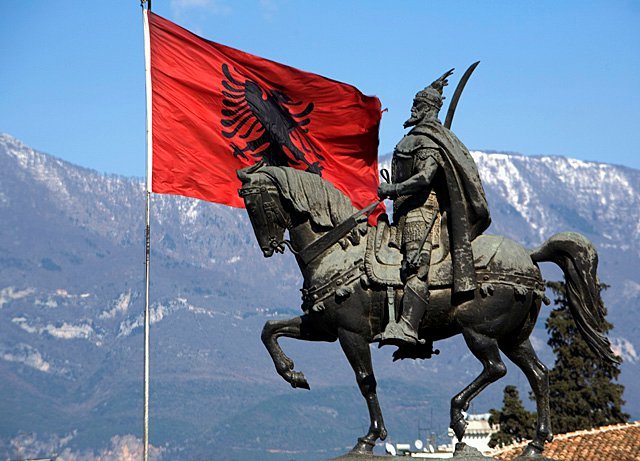Gjergj Kastrioti Skanderbeg, an esteemed Albanian national hero, is celebrated for his numerous legendary exploits. Taken as a hostage by the Ottomans at a young age, he defied the common narrative of complete assimilation by secretly preserving his Albanian identity and Catholic faith. His outward conversion to Islam and service in the Ottoman army were strategic maneuvers, allowing him to acquire military skills and insights into Ottoman strategies.
Skanderbeg ranks among the Balkan greats such as Alexander of Hellas, Simeon I of Bulgaria, Vlad the Impaler of Romania, and Mehmet II of the Ottomans. Although he did not conquer as much territory as these figures, he shared their warrior spirit and unwavering belief in his nation's supremacy. Skanderbeg staunchly opposed Turkish influence and is remembered as one of the Pope's most loyal allies. A square in Rome bears his name, and almost every major European city has a street named after him.
After his death in 1468, Skanderbeg's legacy continued to inspire resistance against the Ottomans. A lesser-known story tells of his followers distributing relics of his body, believing them to possess talismanic properties that could protect them in battle. His enduring legacy as a symbol of resistance is both military and cultural, embodying a profound spiritual influence.

